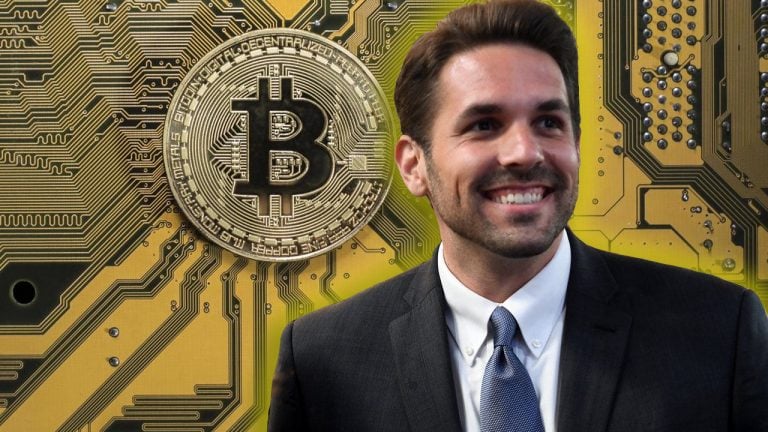 This week, 2,600 tech industry moguls and entrepreneurs, including Elon Musk, Gary Marcus, and Steve Wozniak, signed an open letter requesting artificial intelligence (AI) labs to pause research and development for six months. The signatories believe that safety programs and regulations need to be strengthened, as they assert that AI labs are currently in an […]
This week, 2,600 tech industry moguls and entrepreneurs, including Elon Musk, Gary Marcus, and Steve Wozniak, signed an open letter requesting artificial intelligence (AI) labs to pause research and development for six months. The signatories believe that safety programs and regulations need to be strengthened, as they assert that AI labs are currently in an […]
“This is categorically a very, very negative thing for human beings and for the regulatory environment,” Yang said.
Calls for harsher regulations around cryptocurrencies and digital assets will likely grow louder in the aftermath of FTX’s collapse — something former United States presidential candidate Andrew Yang said isn’t conducive to making America a hotbed for blockchain innovation.
Speaking at the Texas Blockchain Summit in Austin on Nov. 18, Yang acknowledged that the bankruptcy of FTX and sister company Alameda Research would make common sense crypto regulation harder to pass in the short term.
“I've always been in the camp that some intelligent regulation is a good thing. I think it would help the industry mature and make it more mainstream. But, unfortunately, we missed a beat — like a major beat,” he said, referring to the collective failures of FTX, FTX US and Alameda Research.
“Because of FTX and the problems and the headlines and the real people that got hurt, there's going to be an appetite for regulation that, in my mind, might not hit the mark," he said. "Because you want to be able to balance the very real concerns with the need to keep America the home of innovation and development of these tools.”
Yang acknowledged that the path to regulatory clarity on digital assets is more difficult because of the hyper-politicization of the two-party system. As such, the FTX fiasco will only embolden crypto’s biggest opponents to try and squash the industry. Yang said he’s working with the Bipartisan Policy Center, a D.C.-based think tank, to educate congresspeople about blockchain technology and its value proposition:
“[W]e e work with the Bipartisan Policy Center to liaise with members of Congress or their offices or their policy teams and just educate them about what these tools are and what they can do and the problems they can solve and why their constituents actually care and value them. We work with the American Conference of Mayors to have various mayors stand up and say, look, the blockchain is a good thing.”
Related: FTX meltdown triggers FINRA into probing crypto comms
The widening political chasm between Democrats and Republicans is something Yang has long been concerned about, telling Cointelegraph in May that the U.S. midterm elections further demonstrated the politicization of crypto.
Crypto regulation is now being discussed by the White House. https://t.co/bidpXgunJt
— Cointelegraph (@Cointelegraph) November 11, 2022
The need to regulate crypto appears to have intensified over the past week as lawmakers continue to dissect the fallout from FTX. On Nov. 10, White House press secretary Karine Jean-Pierre said the Biden administration would “closely monitor” developments in the sector.

A new lobbying group will seek to educate legislators and create pilot programs to convince them of the utility of Web3.
Lobbying by the cryptocurrency industry and crypto proponents is booming in the U.S. Congress. According to a report released Tuesday by Public Citizen, the number of lobbyists for cryptocurrency-related issues rose from 115 in 2018 to 320 in 2021, with the number of representatives of the cryptocurrency industry itself jumping from 47 to 157 in that time.
In February, that chorus was joined by the somewhat unorthodox Lobby3, “a project to fund effective policy advocacy and educate lawmakers about the positive potential of Web3” that is the brainchild of former U.S. presidential and New York City mayoral candidate Andrew Yang. The lobby is structured as a DAO, with membership tokens available at three levels priced at 0.07 ETH, 1 ETH and 40 ETH.
As the March 10 cutoff for token minting approached, Yang spoke with The Defiant about the lobby and the potential of Web3 as a vehicle for social good.
“There is a maturation and an evolution,” Yang said. “I think that most people in Web3 probably enjoyed not having the attention of regulators, but we have to know that ship has sailed. People are getting letters from the SEC up the wazoo nowadays.”
The task now is to “avoid ill-conceived or overly freighted rules from coming out in the not-so-distant future,” Yang said. In particular, he spoke of the need for regulation to balance risk management and value creation and said that ideally cryptocurrency would not be regulated by the SEC, but by a new agency that has yet to be set up.
One of the more concrete steps Yang mentioned was cohosting “Blockchain 101” with the Crypto Caucus “that we hope will get dozens” of members of Congress.
Yang had made universal basic income, or UBI, a plank in his presidential campaign, and he said that “in my experience, 85% of people in the [cryptocurrency] community are for some version of UBI” because they have “escaped this mindset of scarcity and reached a sense of growth and abundance, and they want that for more people.” He pointed to GoodDollar and similar projects as examples of current efforts to achieve UBI with cryptocurrency.
Lobby3 will also seek to create pilot programs to demonstrate the potential of Web3, which Yang defined as “all the technologies that rely upon the blockchain, most notably NFTs and cryptocurrencies.” The lobby hoped to “build onramps” to financial inclusion “for particular communities and then highlight how beneficial it’s been.” Yang did not provide specific examples of this process.
 Curtis Sliwa, a candidate for New York City (NYC) mayor, said that he will make his city “the most cryptocurrency-friendly city” in the U.S. if he is elected. He joins a growing list of mayors and mayoral candidates in growing cryptocurrency adoption. Mayoral Candidate Plans to Turn NYC Into the Most Crypto-Friendly City NYC mayoral […]
Curtis Sliwa, a candidate for New York City (NYC) mayor, said that he will make his city “the most cryptocurrency-friendly city” in the U.S. if he is elected. He joins a growing list of mayors and mayoral candidates in growing cryptocurrency adoption. Mayoral Candidate Plans to Turn NYC Into the Most Crypto-Friendly City NYC mayoral […] Jackson, Tennessee’s mayor is a fan of bitcoin and he wants the city to become a bitcoin hub in order to entice technology companies and innovation. Jackson’s mayor Scott Conger is in the midst of discussing creating legislation that allows Jackson residents to pay property taxes with bitcoin. Jackson, Tennessee’s Mayor Is a Fan of […]
Jackson, Tennessee’s mayor is a fan of bitcoin and he wants the city to become a bitcoin hub in order to entice technology companies and innovation. Jackson’s mayor Scott Conger is in the midst of discussing creating legislation that allows Jackson residents to pay property taxes with bitcoin. Jackson, Tennessee’s Mayor Is a Fan of […]